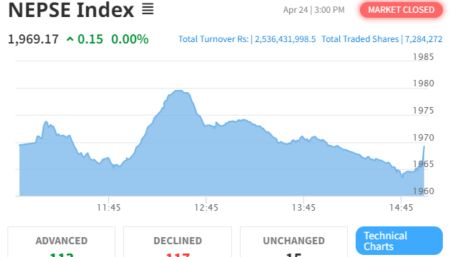-- By Harendra Jung Thapa
Getting the answers to queries like how the business is faring now as compared to the same period last year, is it on the up-trend or is it nose-diving or is it stagnant, would no doubt be of great curiosity for any business entrepreneur regardless of their geographical presence. Can you guess what that determinant is, which leads you to such crucial and significant information? Yes you are right if your answer is “data” and data is but a precursor to multiple sources of information when interpreted correctly. Also the growing demand for business data analytic experts in today’s context validates the significance of data in today’s business world.
There are cases, where, many a family runs small and medium businesses but do not have proper business data records. It is simply because of their ignorance about the significance of data or mere complacency. Such businesses which have little or almost no data of the past lack the yardstick to measure its overall position. Neither can it be compared with itself nor be compared with competitors from its peer group. Thus, having ample past data of all functional units of a company becomes very crucial to figure out the clear picture of the company’s overall profile, position and to deduce a clear route of the business’s journey till date.
It would be unprofessional not to consider data as an important component/determinant of the business decision making process. You should also note that the repository of data in itself does not convey any information that could be crucial for business decision making. The data derived from authentic sources, will be complete and accurate and will have to go through a churning process through the use of analytical tools or data related software applications. This refined information could give you multi-faceted summaries of other interrelated information from the data under scrutiny and also derive multiple statistics. You could also get a clear picture of the trend of business transactions, the future projection of business transactions and graphical or pictorial forms of informational summaries of many interrelated topics of concern. On the other hand, it is up to you to interpret the summaries and statistical information correctly in order to use them prudently in the business decision making process or in devising a future strategy.
Now the question is, do all the decisions you take based on the analysis of available data prove to be good? Obviously not, as the information derived from the data is again based on how well and carefully it has been compiled. To ensure that the data you have is highly reliable, purely depends on various factors as mentioned below:
Correct selection of data type: Your analytical software, though its meant to use data for deriving summaries of useful information or statistical information, does not itself verify the authenticity of the data provided. You should therefore ensure that the data being provided is very relevant and is rightly selected to avert any kind of error in the result of analysis. So as far as possible the data should be taken from the concerned authority or department rather than the other source.
Accuracy of data: Whether the data, ready for analysis, is accurate and is free from any kind of fabrication is of utmost importance. If the data provided is a mix of fabricated data with bias or figures taken for granted, then the information derived in such cases could be misleading and affect both your interpretation and ruin decision making.
Consistency for completeness of data: You should ensure that the data you have derived is complete in terms of the duration under consideration and sets of other interconnected data components. For instance, if we have a data of sales figures of one particular day then that figure alone does not make it complete unless other data components linked to that data like when the sales happened, from which outlet, who the sales person was etc are also recorded with it. The complete set of data for any given period will help deduce clarity on the historical trend of the transactions and lays a solid foundation for forecasting the future trend of transactions.
Easiness of data being retrievable: Data is not meant to be lost and forgotten. They are valuable assets which you should store safely and in a way to easily retrieve them whenever you require. Further, it would be even better if they can be extracted in any other data application software for better customisation or presentation in graphical or pictorial forms or in the form of statistical summaries or dashboards.
As a matter of fact, with the data backed information system in place for all functional units within your company, you will be in a better position to dive deep into what has gone wrong and where. This will indeed help you to promptly identify the shortcomings/deficiencies and enable you to initiate pronto remedial action for putting things back on track.
The writer is Operations Head at Surya Power Company.





















